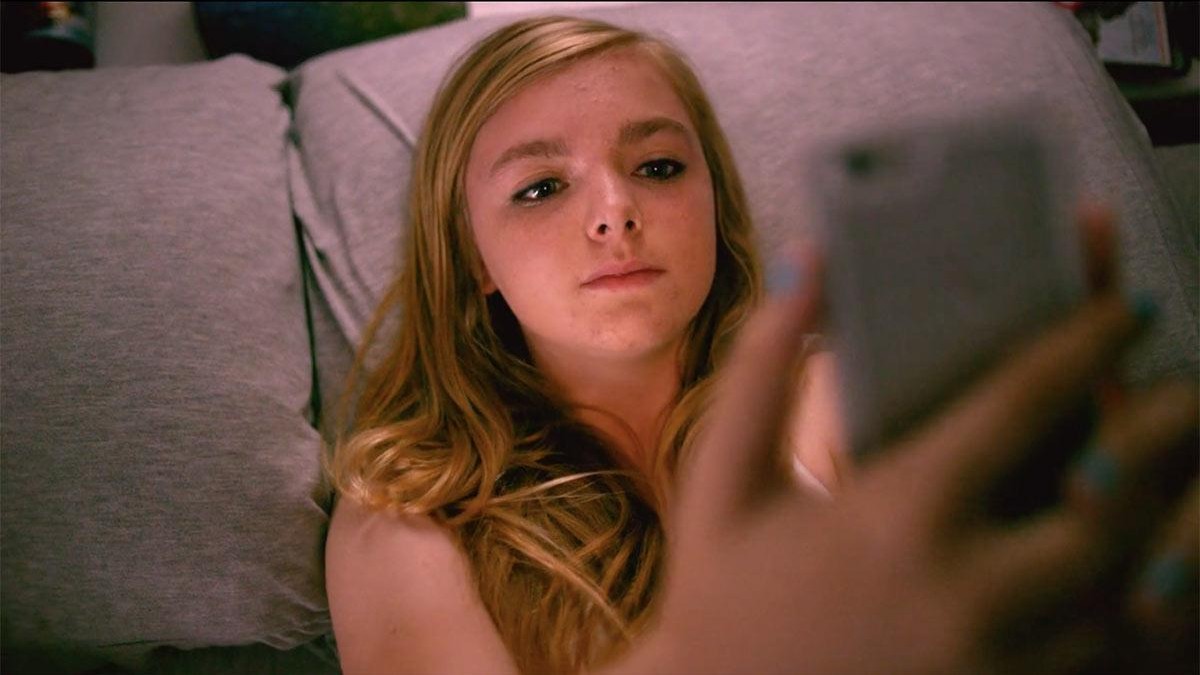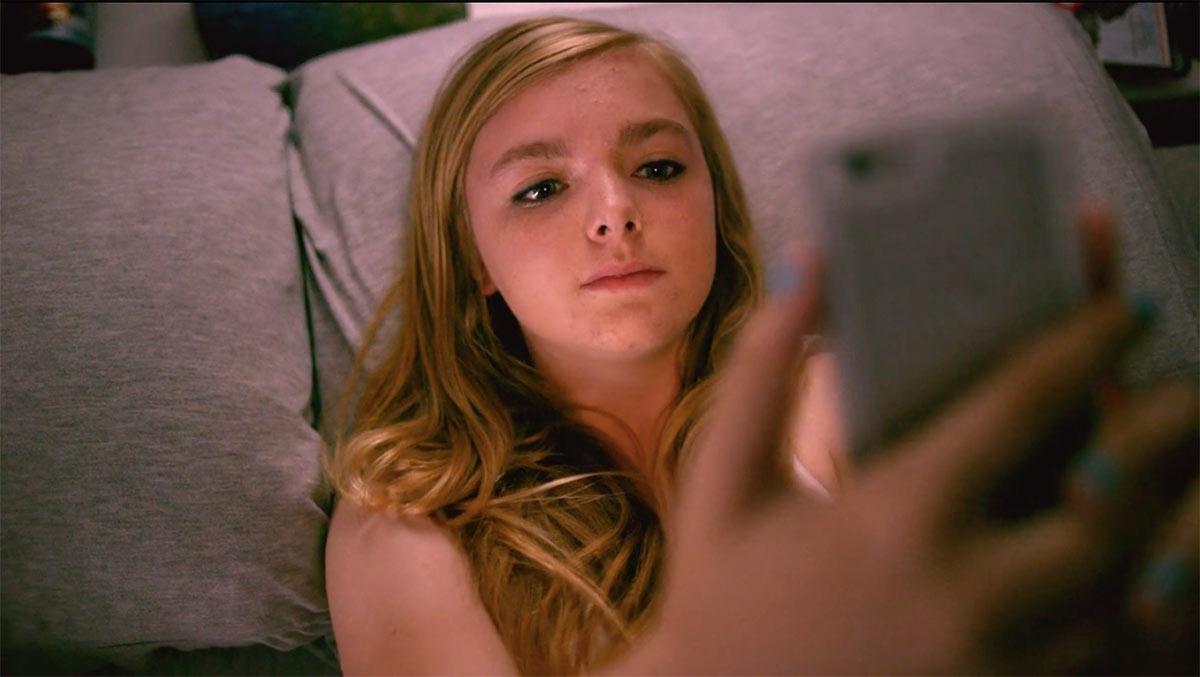Bo Burnham is an eighth-grade girl.
Well, it would be more accurate to say that not only is he an eighth-grade girl – although his understanding and portrayal of this confusing time in adolescent life is astoundingly spot-on – but reveals that we all are eighth-grade girls, or once were. Which is to say that at one time or another, we’ve all felt the same shared sense of awkwardness, that of identity confusion and a general longing for love that unites us all, no matter our gender, age, or generation.
The directorial debut of comedian Bo Burnham, Eighth Grade is, on the surface, a modest movie. Essentially, we follow a teen in the last week of her middle school year, along with all of the important and trivial life events that pop up. But that would be like saying last year’s Best Picture nominee Lady Bird was just a movie about a high school senior (Eighth Grade was also produced by Scott Rudin and Eli Bush). Specifically, what these movies have in common is a theme that is most noticeable: one of authenticity, identity, and the general nature of who we are by how we choose to live.
Perhaps no one knows this better than Burnham himself, who dealt with crafting an identity in the age of the internet, cultivating a fanbase by creating pop piano hits on YouTube that eventually resulted in a successful standup comedian relationship with Netflix specials and tours. So yes, this movie is about Kayla (Elsie Fisher), an introverted and reserved eighth grader without a best friend, and whose superlative awarded by her class is “Most Quiet.” But below that, it’s really about identity and insecurities that we all have, and are never more relevant than at this time, in this age of social media and online living.
Where Bo Burnham’s directorial effort, which he also wrote, truly shines most, is the examination of the duality of “being yourself.”
Eighth Grade shines a light on the anxieties of growing up in the social media generation like a front-facing flash of a camera selfie. It’s not news that the suffocating artificiality of pop consumerism is such a large part of kids’ lives. The content they take in is then re-created and re-stylized in a feedback loop that results in being either so out of touch with reality or hyper-in touch with a false one. This is what stirs Kayla, who is introverted and reserved at school, but comes to life online making inspirational and self-help videos to an audience of none.
It’s successful because Bo has the eye and mind and insecurities of Kayla, and it doesn’t ring false or sappy – it just feels like he gets it! Eighth Grade is not just a simple trip down nostalgia lane as we skirt uncomfortable issues (the film is rated R for a reason). When the movie touches on the subjects of school shootings and oral sex, the older people in the screening room seemed to grow noticeably uncomfortable, which goes to show how in touch Bo is with the way kids talk these days.
There is a confidence portrayed in his directing as well. We see strong visual sequences where long shots are held to either build tension or, when set to musical moments, feel dreamy and transporting. The synth score is energetic and uplifting as is his forte.
Where Bo Burnham’s directorial effort truly shines most, which he also wrote, is the examination of the duality of “being yourself.” Burnham’s stand up specials – the prolific what. and Make Happy, showcase the young millennial, all of twenty seven-years-old himself, as a meta-maddening, self-aware artist consumed by the idea of creating who you are, as well as living naturally to the rest of society’s confirmations.
Eighth Grade is 94 minutes. Rated R for language and some sexual material. Now playing at Arclight Hollywood and the Landmark.
Ryan Rojas
Ryan is the editorial manager of Cinemacy, which he co-runs with his older sister, Morgan. Ryan is a member of the Hollywood Critics Association. Ryan's favorite films include 2001: A Space Odyssey, The Social Network, and The Master.


